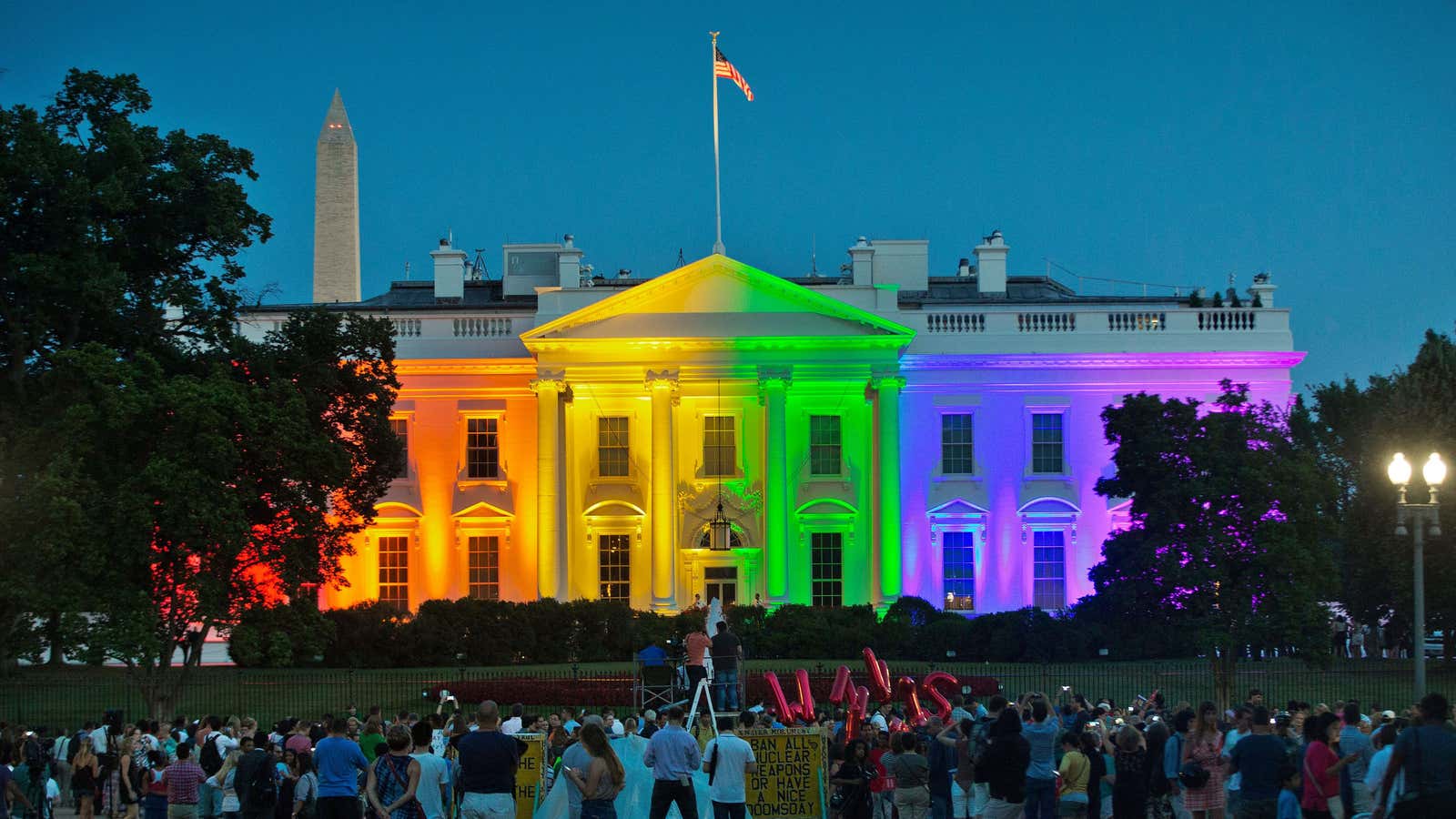October is LGBTQ history month in the US, but the White House doesn’t seem to feel the spirit. Today, the Trump administration ended a policy that provided visas for diplomats’ same-sex partners.
The partners of diplomats and UN staff will only receive US residency visas if they are already legally married in their home countries—though same-sex marriage is only allowed by 12% of UN nations, as former ambassador to the UN Samantha Power noted on Twitter:
The decision came into effect this month after being announced in July. A memo published on Sept. 13 by the United Nations explains that “the Department of State will not issue a G-4 visa for same-sex domestic partners.” To qualify for the visa, the note explains, ”same sex domestic partners accompanying or seeking to join newly arrived United Nations officials must provide proof of marriage to be eligible for a G-4 visa or to seek a change into such status.”
In its own notice sent to the United Nations, the US Department of State explained that the new restriction was designed to make visa policy consistent with the fact that same-sex marriage is now legal in the US.
“[T]he Supreme Court of the United States has ruled that U.S. domestic laws banning recognition of same -sex marriage are unlawful under the United States Constitution,” the note reads. “Consequently, […] the Department will only be able to accept the accreditation and registration of spouses” (pdf, p. 3).
Diplomats’ partners who are already in the country will have three months to provide proof of marriage before Dec. 31, or be required to leave within 30 days. But for many of those who don’t already live in the US, marriage can be impossible and even dangerous: In at least 70 countries, homosexuality is still criminalized.
Until now, married and unmarried same-sex partners of US and international diplomats have been allowed to apply for diplomatic visas thanks to a decision issued in 2009 by then-secretary of state Hillary Clinton (at the time, same-sex marriage wasn’t legal in the US either).
Married heterosexual partners have long been allowed to apply for diplomatic visas. Unmarried heterosexual partners were not awarded the same conditions; heterosexual marriage is legal and widely available around the world.
